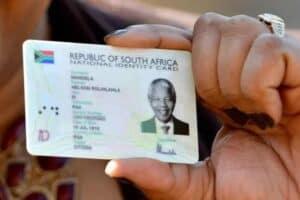The last thing you want is to be miles from home and feeling ill.

For many people, travelling is a necessity. Taking that long-awaited vacation gives the opportunity for rest, refreshment, and rebooting, and can be very good for your physical, mental, and emotional health. It combats stress and lowers your likelihood of developing several chronic diseases like hypertension, diabetes, and obesity.
Travelling though can throw up stresses of its own, and one of the things you really don’t want is to be miles from home and feeling ill. For this reason, you should always have travel insurance, get routine vaccinations, and carry a travel first aid kit with you.
Here are the 9 essential things you should carry in your first aid kit on every trip, no matter how short it is.
1. Your Current Medication
If you routinely take certain medications, you shouldn’t forget to place them in your kit. In fact, this should be the first set of items you should pack. If you have been diagnosed with hypertension, take along your blood pressure drugs. If you are asthmatic, don’t forget your steroid tablets and inhaler.
2. Painkillers
This should be a regular part of your kit because it’s not uncommon for one to feel some headaches or body ache from time to time. Over the counter meds like acetaminophen (paracetamol) and NSAIDS (Ibuprofen) can be taken along.
Be careful to take them in their respective containers and avoid travelling with opioids. If you have chronic pain and need to travel with an opioid or other similar meds, make sure you find out the regulations of your destination and take only a small quantity in a clearly labelled pack. Also, take your prescription document along. Here’s a guide to help you stay compliant.
3. Antihistamine For Allergies
When on a trip, especially during the summer, you need to carry antihistamines just in case you get bitten by an insect or develop an allergic reaction. This is particularly important if you are going to be doing some hiking or some outdoor adventure. It might also help you if you’re allergic to certain foods and you mistakenly eat them.
4. Motion Sickness Medication
About 1 in every 3 people is susceptible to motion sickness. Surprisingly, many people who have this condition might not be aware of it. You should take meds for this to prevent you from throwing up when on a boat ride or even when on a plane. Even if you don’t develop this sickness on your trip, someone else might, so you’ll be very helpful to that person.
5. Antibiotics and Anti-Diarrheal Medication
Once in a while, we might get affected by infections that cause diarrhoea. If this happens when you’re on vacation, you might feel helpless if you’re far out from a health facility. You can discuss with your doctor to give you a broad range antibiotic that works for bacterial gastrointestinal infections and other anti-diarrheal drugs that could stop you from stooling.
In addition, you must carry an oral rehydration solution powder with you. You can use this to prepare a drink that will keep you from dehydration until you can get to a health centre.
6. Prophylactic Medication For Your Destination
There are certain diseases that are more common in particular countries than in others. You should take out time to study the country you’re visiting and identify its common health issues and diseases. This will inform your choice for prophylactic medication. For example, if you plan to visit a country in Sub-Saharan Africa, you should take some malaria prophylactic drugs with you. You should also get vaccinated for common diseases present at your proposed destination.
7. Wound Dressing Pack
This is a basic feature of most first aid kits, you should ask at a nearby pharmacy for a wound dressing pack. Many times, it comes with sterile gloves, some cotton wool, gauze, and plasters. This should help you handle any minor cut or bruise when on your trip.
8. Thermometer
A thermometer helps you check your temperature at will. If you feel ill, you can objectively check if you’re having a fever or not. Many thermometers are fragile, so you should ensure your bag that contains your first aid materials is cushioned. You can also place your first aid kit in a hard side suitcase, this protects it from the many external forces around the airport.
9. Sunscreen
Skin cancer and sunburns can be an issue with exposure to UV-radiation from the sun. So, you should always carry a sunscreen cream, especially when going outdoors or to the beach. To guide your buying decision, you should get one with SPF-30. SPF is a measure of how long you can expect to be protected from the sun’s UV-light. For SPF 15, you can expect it to last for about 150 minutes. While SPF-30 can last for 300 minutes.
You can also carry a hat, sunshades, and avoid direct sun rays as much as possible.
For more news your way, download The Citizen’s app for iOS and Android.
Support Local Journalism
Add The Citizen as a Preferred Source on Google and follow us on Google News to see more of our trusted reporting in Google News and Top Stories.








